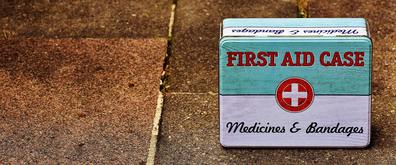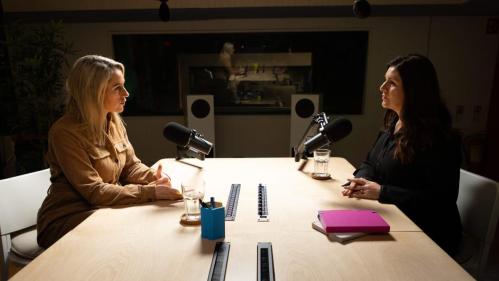 The main point we are teaching parents is that it is better to do something than nothing. We focus to make parents confident that they can handle a First Aid situation. First Aid is not open heart surgery! It starts with holding the child’s hand and reassuring her/him that everything will be okay.
The main point we are teaching parents is that it is better to do something than nothing. We focus to make parents confident that they can handle a First Aid situation. First Aid is not open heart surgery! It starts with holding the child’s hand and reassuring her/him that everything will be okay.
It is amazing and sometimes scary how little many parents know about safety in the home as well as very basic First Aid techniques. Our catch phrase we use in our classes is “It is better to know First Aid and not need it than to need and not know it!” We think it sums it up nicely.
Here are a few tips for parents on what to do in an emergency:
The first and most important piece of advice is “stay calm”. Most parents’ instinct in an emergency situation is to panic.
However it is crucial that the parents keeps their nerves and reassure their child. Otherwise the situation can further escalate and you might not be able to treat the child appropriately.
- Don’t run to the child – this might even put the parent in danger
- Check if the scene of the accident is safe – an injured parent can’t help the child
- Talk calmly to the child and play down any injury
- Reassure her/him that everything will be okay
Don’t be shy to ask for help! Many parents are well able to look after other children when they get hurt. However this ability disappears for many when it’s their own child. Ask friends, neighbours or by-passers for help.
We have regularly “visitors” from the neighbourhood with injured kids. That ranges from nosebleeds, bee stings and high temperatures to broken glass in the foot. All of these situations could have been handled by the parents themselves but they felt the needed some help.
So don’t be afraid to ask help. There is no point to try to be the hero parent if you feel you can’t handle the situation.
All parents should talk to their children about potential emergency situations and what to do. It is important that even very young children know at least the emergency numbers and what to say if they have to use them. Don’t forget it could be the adult who is in need of help.
- Use roll play as part of your family dinner, i.e. “What is number for the ambulance?”, “Can you tell the lady on the phone where you live?”
- Make sure children know the address where they live off by heart.
- Ask your child if they would know a landmark where they live, i.e. “our house has bright red shutters” – this could be vital to direct an ambulance especially in modern housing estates
Even young children can be taught how to put somebody into the recovery position and how to open somebody’s airway. This can easily be taught through play and can be a potential life saver.








